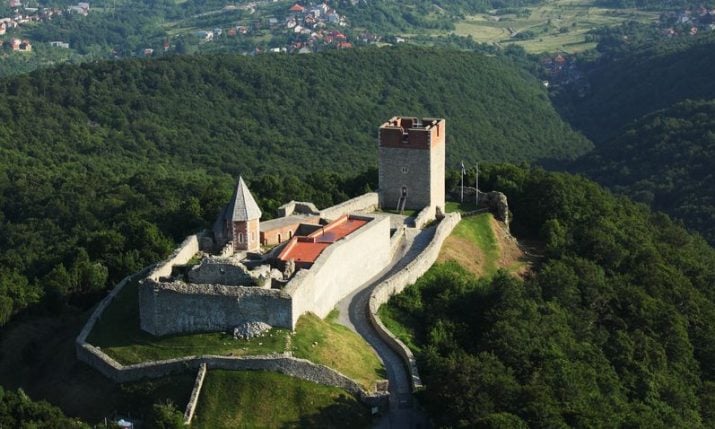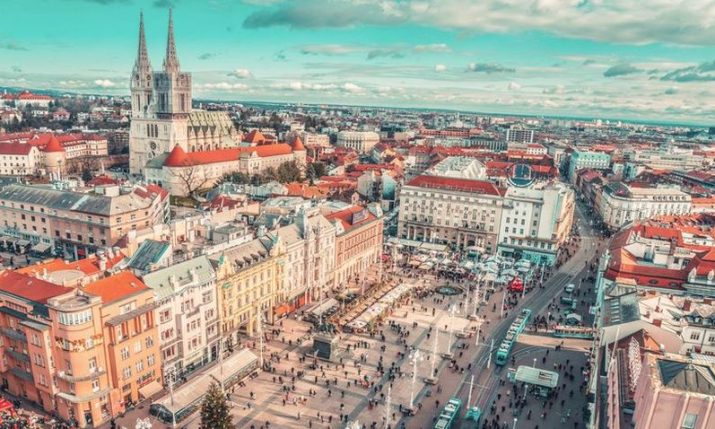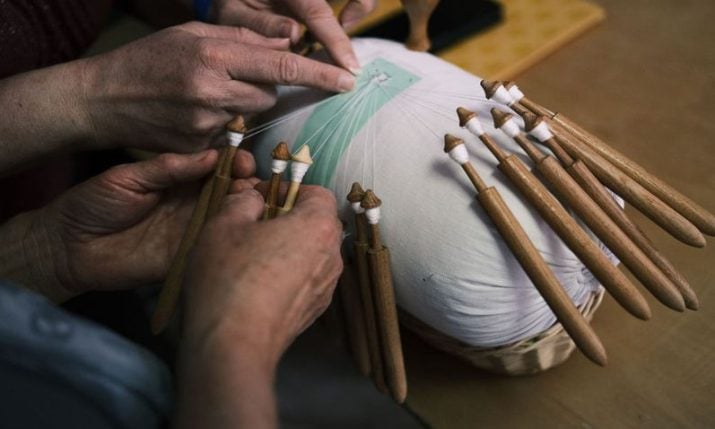S&P’s affirming Croatia’s investment grade good news, says FinMin
- by croatiaweek
- in Business

Zagreb (Photo: D. Rostuhrar/Zagreb TZ)
ZAGREB, Sept 19 (Hina) – Finance Minister Zdravko Maric said on Saturday the Standard & Poor’s agency having affirmed its ‘BBB-/A-3’ long- and short-term sovereign credit ratings on Croatia showed the agency’s trust in the Croatian government and measures taken during the coronavirus crisis.
Standard & Poor’s on Friday affirmed its ‘BBB-/A-3’ long- and short-term sovereign credit ratings on Croatia, with a stable outlook.
“This is good news for Croatia, we are glad about it, the most important thing is that the country’s investment credit ratings, with a stable outlook, have been confirmed,” Maric told reporters outside his ministry.
He recalled the government’s having set, at the start of its previous term in office, the restoration of Croatia’s investment credit ratings as one of its strategic goals.
“We wanted to achieve this by the end of the term but it happened slightly before the end of the term, in 2019, which is a good thing, because that is the group where Croatia belongs,” he said, hopeful that Croatia would never again slip into the group of countries of high investment risk.
Maric said S&P’s report confirmed that Croatia had done some good things, notably regarding the coronavirus crisis.
“(The report) confirms that our economic measures were both timely and adequate. I’m particularly glad that we entered this crisis much better prepared than was the case in 2008,” he said, noting that progress had been made with regard to reducing external imbalances, primarily in the current account.
He said that emphasis was being put on fiscal policy and that in recent years both the budget surplus and public debt reductions had contributed to Croatia having the maneuvering space it had at the start of the coronavirus crisis.
Maric pointed to the fact that S&P recognised that there were great opportunities lying ahead of Croatia despite the challenges, and in that context he mentioned the Next Generation EU fund as well as the need to implement reforms and enable investments to continue, both in the public and in the private sector.
Full recovery not before late 2022
The minister recalled that S&P’s projections for Croatia for this year are slightly better than they were originally, announcing that next week the government would present the guidelines of its economic and fiscal policies, with figures being almost the same as those presented by S&P.
S&P estimates that Croatia’s economy will contract by 8% this year, as against its previous forecast of 9%. In 2021 the economy should grow by 5.6% and reach the pre-pandemic level in 2022, a year sooner than forecast in May this year.
“We, too, expect the year to be better than forecast in April and May, and as for 2021, we too expect growth but will be cautious in our estimates. What is very certain is that we cannot expect full recovery before the end of 2022,” the minister said.
Scandals should be seen as good lessons to set things right, improve system
Asked by reporters about the latest corruption scandal involving the CEO of the JANAF oil pipeline operator, Dragan Kovacevic, and two parliamentary deputies, Maric said that those were not pleasant things but that they should serve as good lessons to set things right and make possible improvements to the system.
Asked if the government would ensure a transparent system of financing of local communities, as is the case in Bjelovar, Maric said that work was underway on that and that there were very good examples.
Transparency in the spending of taxpayers’ money is a necessary precondition to build the trust we are talking about, he said.
State will not leave local gov’t units without adequate measures
Asked about announced tax changes, Maric recalled that profit tax would be reduced from 12% to 10%, and that the changes would refer to close to 93% of profit tax payers, namely those whose annual income does not exceed HRK 7.5 million.
For all the others, whose revenue exceeds that amount, the profit tax rate will remain at 18%.
Profit tax belongs to budget revenues, with Maric recalling that a meeting held with representatives of local government units on Friday discussed more the announced changes to income tax, which constitutes local government units’ revenue.
The income tax rates are about to be reduced from 36% to 30% and from 24% to 20%, which will leave local government units short of around two billion kuna.
Income tax constitutes the revenue of municipalities, towns and counties and we will not turn our back on those government units and leave them without adequate measures, said the minister.
He explained that the share of towns, municipalities and counties in income tax would grow and that the fund designed to help less developed local government units would no longer be filled by local government units but by the state.
That fund, which is now filled by all local government units, will no longer be filled by them but by the state budget, Maric said.
The fund totals slightly more than two billion kuna. It will help fully neutralise the loss to be incurred by local government units due to the drop in revenues from income tax, he said, recalling that the state had helped local units during the coronavirus crisis also by giving them interest-free loans in the amount of around HRK 1.4 billion.
Asked about the possible withdrawal of BAT from Croatia and the winding down of production in Kanfanar, Maric said talks were underway.
Croatia has the second lowest tobacco excise taxes in the EU but since neighbouring countries which are not EU members do not have the obligation to align their excise tax system to that of the EU, that causes the problem of legal as well as illegal trade in tobacco products, he said.
We have been conducting an open dialogue about that, and it remains to be seen in the coming days and weeks what will happen, he said, adding that he hoped BAT would accept the government’s argument that it had been working steadily on improving conditions for doing business, including through tax reliefs.
He also described as good and positive the news that the Swedish Stillfront Group was buying Croatia’s Nanobit game developer for US $148 million.









